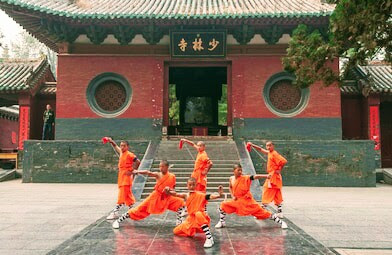The use of knowledge depends upon a man's SILA.
Vichar and Achar Dhamma means thinking and acting Dhamma.
Are you excited ? Keep reading.
Link here -
Earth & Sages 2023 Structure Formation
Buddhism Beliefs
A man , if he possesses four qualities, as one of great wisdom, as a great man.
Again in all the business of a householder he is skilled and diligent and therein he is resourceful and capable of investigating what is proper to be done what should be arranged .
To whatsoever train of thought he wishes to apply himself to that train of thought he applies himself: to whatever train of thought he desires not to apply himself, to that train of thought he applies not himself.
Also he is one who attains at will ,without difficulty and without trouble the four musings which belongs to the higher thoughts,which even in this very life are blissful to abide in.
Link here -
Top 5 Religious Universe Philosophy Schools.
Prajna Buddhism
morality', 'virtue',is a method of brain and volition (cetana) showed in discourse or substantial activity (s. karma).
It is the establishment of the entire Buddhist practice, and therewith the first of the 3 sorts of preparing (sikkhā) that structure the 3-overlay division of the 8-overlap Path (s. magga), for example ethical quality, fixation and shrewdness.
Buddhist profound quality isn't, as it might show up from the negative plans in the Sutta-messages, something negative.
Furthermore, it doesn't comprise in the simple not submitting of abhorrent activities, however is in each occasion the obviously cognizant and purposeful limitation from the awful activities being referred to and relates to the all the while emerging volition.
Link here -
Why is The Prophet so popular?
Sila In Buddhism
Morality of the 8-overlay Path, specifically, right discourse, right activity and right job, is called 'certifiable or common ethical quality' pakatisīla), as recognized from the outer principles for priests or laymen, the purported 'recommended ethical quality' (paññatti-sīla, q.v.), which, all things considered, is karmically impartial.
morality; Sila isn't just keeping away from what ought not be done, it is additionally seeing what should be done, we can notice moral statutes which are the establishment of healthy lead.
1) Śīla alludes to "order" or "profound quality" and is called intrinsic goodness as per the second century
Śīla is of three sorts:
- hīnaśīla – By methods for "lower ethical quality", one is reawakened among people (manuṣya);
- madhyaśīla – By "average ethical quality", one is reawakened among the six classes of lords of the craving domain (kāmadhātudeva);
- praṇītaśīla – By "unrivaled ethical quality", one is reawakened among the unadulterated divine beings (śuddhāvāsadeva) of the structure domain (rūpadhātu) and the nebulous domain (ārūpyadhātu).
Despite the fact that the ethical man has no weapons (āyudha), insidious individuals don't assault him.
Profound quality is a fortune (vitta) that can't be lost; it is a parent (jñāti) who doesn't forsake you even after death; it is a decoration (ālaṃkāra) that outperforms the seven gems (saptaratna).
This is the reason ethical quality must be protected as though one were guarding the life of the body (kāyajīvita) or as though one were looking after a valuable item.
The corrupt man perseveres through 10,000 sufferings; he resembles the helpless man who broke his container and lost his riches, This is the reason unadulterated control must be noticed.
Highminded direct of body and discourse. Sila is otherwise called Precepts.
Shīla (śīla) Skt. (Pali, sīla), "commitments, precepts"; alludes to the moral rules that in Buddhism decide the conduct of priests, nuns, and laypersons and that comprise the precondition for any advancement on the way of enlivening.
Link here -
What is the right effort in Buddhism?
10 Buddhist Precepts
The ten shīlas for priests, nuns and beginners are:
- abstaining from executing,
- not taking what isn't given,
- forgoing disallowed sexual action,
- forgoing unfair discourse,
- keeping away from intoxicating drinks,
- swearing off strong food after early afternoon,
- dodging music, dance, plays, and different excitements,
- swearing off the utilization of fragrances and elaborate adornments,
- refraining from staying in bed high, delicate beds,
- refraining from contact with cash and different assets.
Conclusion -
The initial five shīlas apply additionally to Buddhist laypersons, who on specific days notice the initial eight. Thats why everyone ought to follow such thinking and acting Dhamma.
